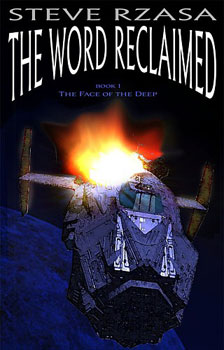I’ll admit, when it comes to speculative fiction, I lean much stronger toward the fantasy side of things so today’s post, dealing with some deep sci-fi subgenres, was fun to write — almost like discovering a new world.
We’re tackling space opera and hard science fiction. Both of these subgenres fall under science fiction. I’ve met many readers and authors who say the subgenres are getting too specific, but I’m delving into a few of them anyway. 😉
Space Opera
We’ve all heard the term soap opera. Well, space opera is a play on words, but I can guarantee you’ll enjoy space opera more than a soap opera. Can they even be compared? You could have melodramatic romance in “real-life” settings (ha!) or melodramatic romance in outer space with high-tech weapons, adventure, and special abilities.
Not even a question.
Now that we’ve established you should turn off your two-a.m. soap opera show (hypothetically, because none of us watch them, right? *wink*) and pick up a book, let me give you some more details:
Space opera leans toward the melodramatic, over-the-top story and characters. It emphasizes space travel and follows an adventure-style format. It can stray from what is realistic and doesn’t always stick to the laws that have been established in science fiction because the story emphasizes the characters more than the setting.
It’s actually difficult to define which books are classified as “space opera,” especially since the term has only been considered a legitimate subgenre of science fiction since the 1990s. So here are some examples:

- The Face of the Deep Series, by our very own Steve Rzasa
- Dune, by Frank Herbert (this one is controversial among fans whether or not it’s space opera, but I’m putting it anyway.)
- Hyperion, by Dan Simmons
- Triplanetary, by E. E. Smith (Lensmen Series)
Hard Science Fiction
The main defining phrase you need to remember for hard sci-fi is this: accurate science and technology. There you go, you’ve mastered hard sci-fi!
Okay, just kidding. We all know it wouldn’t be an amazing subgenre if it was that easy to master.
Hard sci-fi revolves around accurate science and detailed technology. Most everything about the story should be theoretically possible depending on the advance of our technology. This doesn’t mean the used science or technology has to be at play in our world today. It can be speculated technology (hence our glorious term, speculative fiction.) But it needs to make sense, as if it could actually happen. This allows a level of flexibility for the story, too.
Fear not, hard sci-fi also has…characters! And story! And plot! It’s not all science, but the characters aren’t usually the main focus of the story. Plot steals the show because it can develop all the details and scientific explanations that hard sci-fi fans eat up.
A lot of controversy covers the internet of what classifies as real hard sci-fi and I’m no expert. For example, many readers will say that FTL travel (that’s faster-than-light travel for those of you who — like me — didn’t know this acronym by heart) disqualifies a book from the hard sci-fi classification. Then there are those who accept it.
Readers will often try to find discrepancies in hard sci-fi books, a habit that Gary Westfahl called “the game.” I mean, why not read a book, stretch your science brain, and play a game all at the same time?
With that being said, here’s my attempt at a few book examples of hard sci-fi, but you may want to read them and play “the game” to be sure I’m classifying them correctly. [grin]
- 20,000 Leagues Under the Sea, by Jules Verne
- Rendevous with Rama, by Arthur C. Clarke
- 2001: A Space Oddyssey, by Arthur C. Clarke (really, most things by Arthur C. Clarke)
- Foundation, by Isaac Asimov
Do you have any book recommendations for space opera or hard sci-fi?


My all time favorite space opera is the Sharon Lee Steve Miller Liad series. Excepting the last one, in which they finally bowed to “cultural norms,” the stories were beautiful and clean, which is a requirement of mine. Don’t want sex, don’t want swearing, don’t want descriptive violence. Adventure, true love, honor, and fulfills all your requirements for Space Opera!
Hey Nadine;
I just saw your tagline in an Enclave email. I just friended Steve R. in Fb and Morgan L. is someone I follow, but I’d not heard your name before. Question , is Enclave the reborn MLP or is it another Christian Sf publisher?
I started out to write Space Opera back in 2008 when the Lord changed my calling and told me to learn the writers craft. I grew up in the 1950’s and 60’s (no dinosaurs didn’t still roam the earth but the first digital calculator was still decades away and the threat of Nuclear annihilation hung over our elementary and high school years).
I was an avid Science Fiction fan, subscribed to the pulp magazines and a major Science Fiction book club with my lawn mowing earnings. Back then it was all just Science Fiction and Fantasy, and it also was almost universally Space Opera. Romance of some sort was almost de riguer in all Sci-Fi stories. We didn’t really have too many categories back then. It was all considered “Hard Sci-Fi” if it used tech that “could” be developed (and back then we believed anything could and would be developed). I grew up on Tom Swift as a younger boy and graduated to Issac Asimov and his cohorts in my teens. Scientific Optimism gripped out generation.
I’m not sure where you got the idea that Hard Sci-Fi excludes FTL. Historically all hard Sci-Fi included some kind of FTL. It had to be science based and have some kind of technology (ie. Folding Space [Herbert; Dune], other dimensional transit [Doc. {somebody or other}; Lensman series], Hyperspace jump drive [Asimov and others]). One of my favorite authors even introduced a method of Teleportation as FTL. The essential thing was to stretch the boundaries of what was known and explore what we thought was plausible.
As a Hard Science Fiction writer I’d like to offer the working definition that I use for Hard SF. “The Laws of Physics as we know them apply, but the Speculative aspect of the work adds undiscovered applications for those laws and the discovery of new laws as human knowlege expands.”
As a reference check out the work of two of the most successful secular Sci-Fi authors of the modern age: Dave Webber [Honor Harrington & the Dahak Saga; Baen Books] and David Drake [Lt. Leary series, Hammers Slammers series; also Baen books], without FTL they would have no stories.
You see, at it’s core Science Fiction is 50’s and 60’s TV Western Horse opera and Military adventure shows, with Space ships instead of horses or the Wet Navy / Airforce for transport. Different old west territories and Foreign lands become different star systems and alien races.
In general I’ve always rebelled against cutting the subgeneres so fine. It was always Science Fiction and Fantasy when I was growing up and the best writers always manged to blur the lines between the two. The best fantasy writers brought in Sci-Fi elements and the best Sci-Fi writers frequently sprinkled some fantasy fairy dust into their stories. With the exception of High Canonical Celtic “Fantasy” (have a care there, that was our religion before Christ) I still see the two blended often, I even blend them to some extent myself.
I’ll keep an eye on Enclave. I wasn’t good enough to even think of it when MLP still had a open submissions queue. Now that I’m starting to get published I’ll give you guys a second look.
Write on sister
SGD
dave